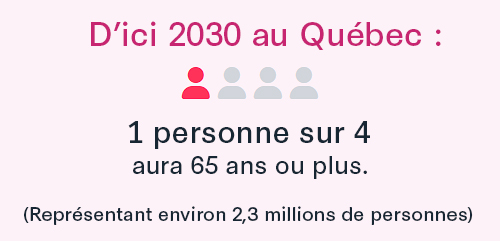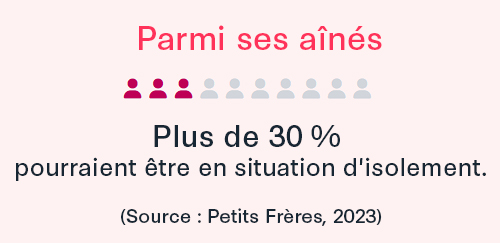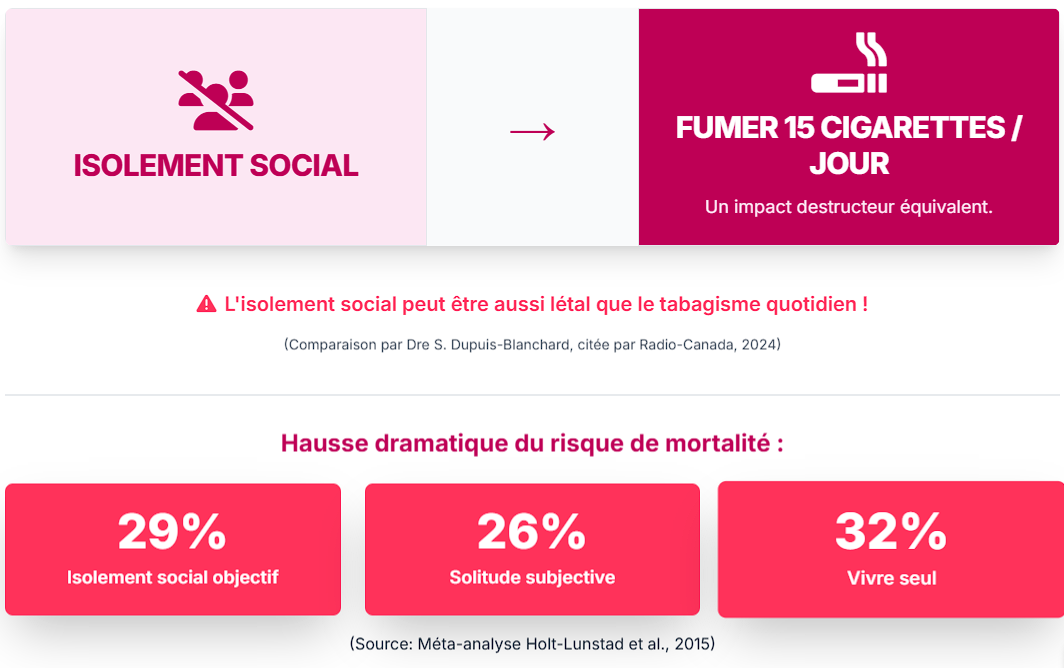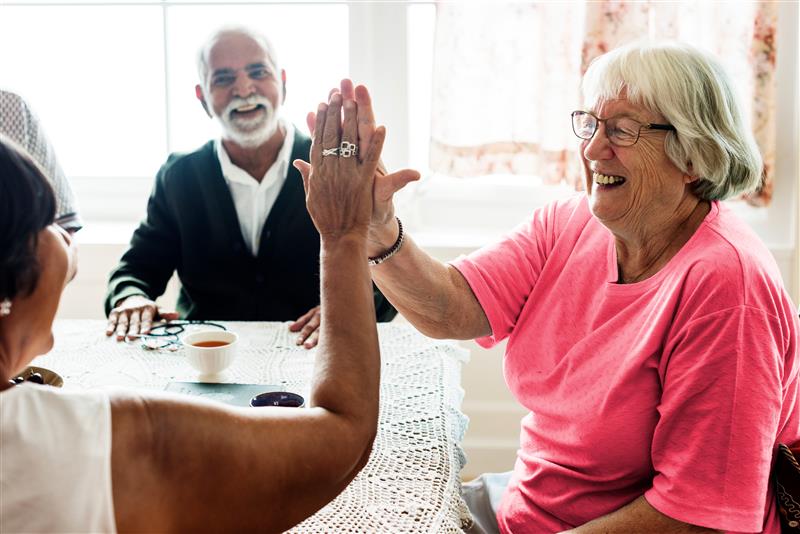More than just loneliness, isolation has crept into daily life in Quebec, creating a human gap whose magnitude affects us all. Our population is aging; it’s a tangible reality: by 2030, one in four people will have reached the age of 65. In this demographic landscape, a dull tide—that of social isolation among seniors—threatens to sweep everything away in its path if we stand idly by.
Far from being a series of news stories, this is a genuine public health issue, with often painful and persistent repercussions. This situation calls us to action. It invites us to take a clear-eyed look at these lives often confined to silence, to grasp, with figures to back it up, what it means to age in disconnection, and above all, to seek together how to rebuild lasting connections. Countering this neglect is a deep-seated conviction that guides many of our daily actions.
Loneliness in figures: a shocking observation, an essential mobilization
Studies paint a worrying picture of the isolation of seniors in Quebec. These are not isolated cases; thousands of our older citizens are experiencing a social disconnection of alarming proportions:
► A growing danger: Demographers estimate that, by 2030, more than 30% of the 2.3 million Quebecers aged 65 and over could find themselves in a situation of isolation. (Little Brothers, 2023).
► The burden of loneliness : In 2022, 14% of Quebecers aged 65 and over felt “always or often” lonely, a figure that rises to 17% for those aged 75 and over. This observation is further supported by the 26% of those aged 65 and over who reported feeling “sometimes” lonely (Institut de la statistique du Québec, 2022).
► The echo of family silence : For those who live alone, the absence of regular family contact can be particularly burdensome. A survey by the Chaire de recherche sur le vieillissement de l’UQAM (2019), based on previous data and interviews, indicated that 31% of seniors living alone did not benefit from weekly family contact. More recently, a UQAR study (2023) in rural areas corroborated that 35% of isolated seniors in these communities did not have regular family contact (Journal Le Soir, 2023).
These statistics, as enlightening as they may be, do not tell the whole story of lives marked by lack, absence, and often invisible distress. However, they should serve as an electroshock to catalyze action and kindness.



A heavy price: when isolation undermines health
Isolation is not just a wound to the soul; it insidiously attacks the physical and mental health of older adults, compromising their well-being and their right to age with dignity.
► The faltering mind (cognitive threat): The link is established and is striking: social isolation significantly increases the risk of developing dementia. Reference studies report an increase in this risk of up to 50% to 60% (data from reports such as that of the (Report on the Social Isolation of Seniors). Impoverished neuronal stimulation precipitates its deterioration.
► Psychological burden (depression and anxiety) : Isolation acts as a breeding ground for mental health disorders. It can trigger or worsen depression and anxiety. In rural Quebec, during the pandemic, a UQAR study highlighted that subjective social isolation was associated with psychological distress 2.4 times higher in men and 1.9 times higher in women (Journal Le Soir, 2023).
► The heart under strain (cardiovascular risks): Isolation increases the risk of hypertension and cardiovascular disease. Some data suggest a 32% increased risk of stroke among socially isolated people (a result often cited by health organizations, for example, the l’American Heart Association, via Radio-Canada, 2024).
► Fatal outcome (early mortality): The accumulation of these ailments weighs heavily on life expectancy. Experts go so far as to compare the effects of social isolation on mortality to those of smoking 15 cigarettes a day (Dre S. Dupuis-Blanchard, citée par Radio-Canada, 2024).
The risk of death increases markedly.

Behind the numbers, lives: the urgency of active solidarity.
Beyond the percentages, there is a grandmother, a grandfather, a neighbor, waiting for a call that never comes, who has no one to confide their apprehensions to. An existence that, little by little, loses its colour and its dignity. The absence of friendship, of a listening ear, is the absence of an outstretched hand, of occasional help, of a sharing that gives life.
Some people are more exposed: the “very old” (75 years and older), those who live alone, and those who are experiencing financial difficulties or whose health is deteriorating. There are many obstacles to social connection: bereavement, health problems, reduced mobility, but also sometimes a lack of awareness of available resources, the inaccessibility of places of activity, or even this rampant ageism that devalues and hinders the social development of older people.
A call to action: breaking isolation, building solidarity
The observation is clear: the social isolation of seniors in Quebec is a profound human and health challenge. It risks intensifying as our population ages if we remain spectators. The consequences are serious, from psychological distress to premature death, cutting short lives that deserve to be lived with warmth and respect.
Let’s no longer view isolation as a social inevitability; it’s a public health challenge that calls us to action, but also a tremendous opportunity to strengthen our communities. Let’s move from a reactive mindset to a culture of active and caring prevention. Reaching out to an older person means recognizing their value, their story, and their humanity. Investing in reducing social isolation means investing in the quality of life, respect for the rights, and health of older adults.
A call to action: breaking isolation, building solidarity
Every action counts, every voice speaks volumes. Here’s how to take action:
► Increase everyday gestures: simple gestures that maintain contact with the seniors in our lives.
► Advocate for and support visionary public policies that promote the true social inclusion of seniors.
► Discover the actions taken by Mission Inclusion and its partners to concretely improve the well-being of seniors in Quebec.
► Donate to support these initiatives that transform lives every day.

